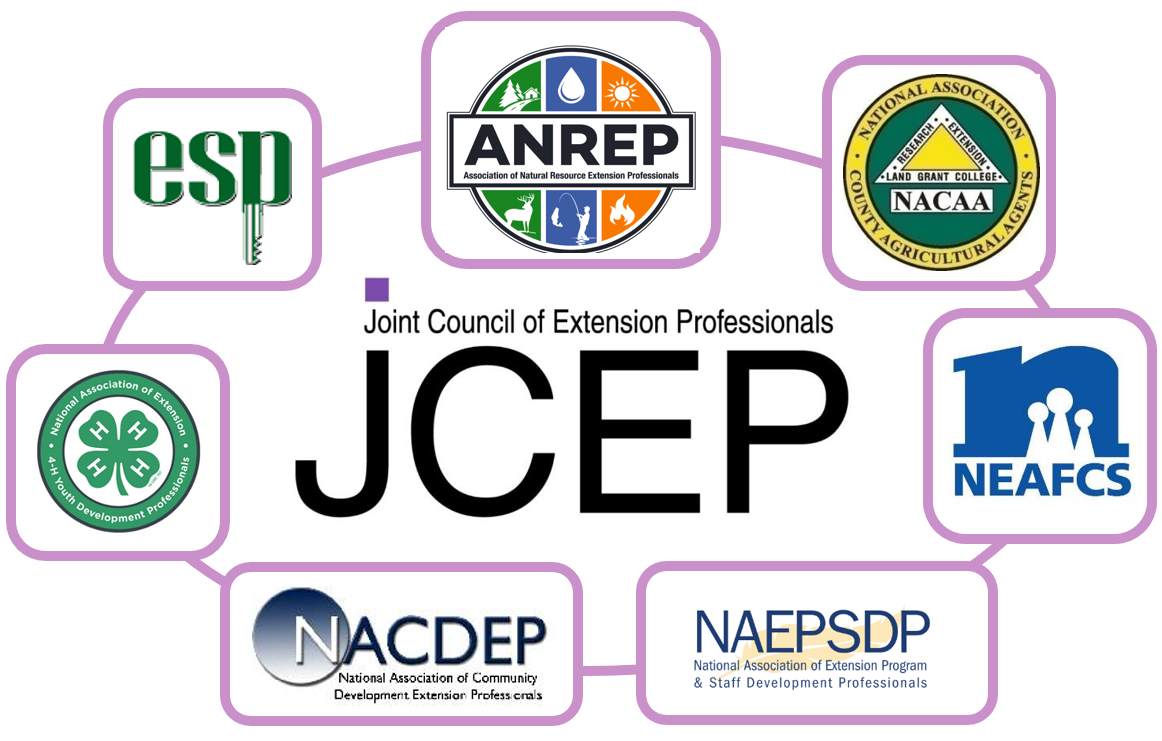Extension Professional Associations - Beyond the Dues: Making the Most of Your Membership
By Beth Clawson, Michigan State University Extension
 Professional organizations have been around for an extraordinarily long time. Being in a guild such as those notable ones from the Middle Ages, masons, carpenters, ironworkers, artists were early forms of professional organizations. They served the purpose of passing down the knowledge of the craft through training new recruits to safeguarding trade secrets to protect from shoddy replications. In Extension the craft is education and sharing knowledge, keeping a standard with others in the field.
Professional organizations have been around for an extraordinarily long time. Being in a guild such as those notable ones from the Middle Ages, masons, carpenters, ironworkers, artists were early forms of professional organizations. They served the purpose of passing down the knowledge of the craft through training new recruits to safeguarding trade secrets to protect from shoddy replications. In Extension the craft is education and sharing knowledge, keeping a standard with others in the field.
Today the purpose of belonging to your professional extension organization is like that in the past. You get more training from experts in the field. You are privy to “trade secrets” and it provides a venue to communicate and network with others through professional development opportunities, meetings, and conferences. The opportunities within states and nationally are many.
The Association of Universities founded in 1887 has evolved into its current form as the Association of Public Land Grant Universities (ALPU). A land-grant college or university is an institution that has been designated by its state legislature or Congress to receive the benefits of the Morrill Acts of 1862 and 1890, or the Equity in Educational Land-Grant Status Act of 1994. The enactment of the Smith-Lever Act passed in 1914 created The Cooperative Extension Service. Housed within the land grant universities is the Cooperative Extension Service, in many places now known simply as Extension. Soon professional organizations of county agents began to form. First by state and growing into the formation of national associations.
Later the various associations formed a joint council or galaxy organization nationally, The Joint Council of Extension Professionals. This included associations from every side of Extension. The Joint Council of Extension Professionals is a partnership among several extension-related organizations in the United States. These include:
- The Association of Natural Resource Extension Professionals (ANREP)
- Epsilon Sigma Phi (ESP)
- National Association of County Agricultural Agents (NACAA)
- National Association of Community Development Extension Professionals (NACDEP)
- National Association of Extension 4-H Youth Development Professionals (NAE4-HYDP)
- The National Association of Extension Program & Staff Development Professionals (NAEPSDP)
- The National Extension Association of Family and Consumer Sciences (NEAFCS)
Extension professionals are individuals who work to extend research-based knowledge from universities to the public. The specific benefits and highlights of being a member of JCEP offer many advantages. Here are some potential highlights:
Professional Development: JCEP often provides opportunities for members to enhance their professional skills and knowledge through conferences, workshops, and training sessions to enhance members' skills and knowledge. Access to conferences and continuous learning events help members to stay updated on research, trends, advancements, and best practices.
Networking: Membership in JCEP allows extension professionals to connect with colleagues, share experiences, and build a network within the extension community. Networking can lead to collaboration on projects, research, and other professional initiatives.
Collaboration: JCEP fosters collaboration among extension professionals from different disciplines and organizations, promoting a multidisciplinary approach to address complex issues and increased rapid response to national issues.
Access to Resources: Members have access to a wealth of resources, including research materials, publications, and tools that can aid in their work and help them to stay current with the latest trends and developments. Many organizations offer discounts on membership fees, conferences, workshops, and other events for their members.
Advocacy: JCEP engages in advocacy efforts to promote the importance of extension services and secure support for extension professionals at local, state, and national levels. JCEP is your national voice providing a collective voice for members on issues, policy matters, legislative, and regulatory changes.
Recognition: Membership in a professional organization like JCEP provides opportunities for national recognition and awards for outstanding contributions that can lead to boosting members’ professional profiles.
Professional Standards: JCEP promotes collective professional standards for extension work, helping to ensure the highest level of quality and consistency in the services provided across the nation.
Leadership Opportunities: Members have the chance to take on leadership roles within JCEP or its affiliated organizations. This gives the opportunity to contribute to the direction and development of extension programs. Providing members with opportunities to gain important leadership skills and a sincere way to give back to the community enhancing their social impact.
Updates on Trends and Research: JCEP keeps its members informed about the latest trends, research findings, and innovations in the field of extension. It helps them stay current in their practice. News announcements and job opportunities are distributed through its member associations websites, email alerts, newsletters, and publications.
It's important to note that JCEP is ever evolving with changes in offerings and benefits and new initiatives introduced with changing needs. Checking the official JCEP website at www.jcep.org contacting the organization directly for the most up-to-date information is recommended. Belonging to a professional organization can contribute significantly to one's personal and career growth by fostering a supportive community, offering learning opportunities, and offering a platform for professional collaboration. Join today!


 Professional organizations have been around for an extraordinarily long time. Being in a guild such as those notable ones from the Middle Ages, masons, carpenters, ironworkers, artists were early forms of professional organizations. They served the purpose of passing down the knowledge of the craft through training new recruits to safeguarding trade secrets to protect from shoddy replications. In Extension the craft is education and sharing knowledge, keeping a standard with others in the field.
Professional organizations have been around for an extraordinarily long time. Being in a guild such as those notable ones from the Middle Ages, masons, carpenters, ironworkers, artists were early forms of professional organizations. They served the purpose of passing down the knowledge of the craft through training new recruits to safeguarding trade secrets to protect from shoddy replications. In Extension the craft is education and sharing knowledge, keeping a standard with others in the field.